A Satyr Mourning Over a Nymph (detail): Piero di Cosimo (1462-1522), c. 1495, oil on poplar, 65.4 × 184.2 cm (National Gallery, London)
(To Iphigeneia)
Your hair is scattered light:
The Greeks will bind it with petals.
And like a little beast,
Dappled and without horns,
That scampered on the hill-rocks,
They will leave you
With stained throat --
Though you never cropped hill-grass
To the reed-cry
And the shepherd's note.
Some Greek hero is cheated
And your mother's court
Of its bride.
And we ask this -- where truth is,
Of what use is valour and is worth?
For evil has conquered the race,
There is no power but in base men,
Nor any man whom the gods do not hate.
Your hair is scattered light:
The Greeks will bind it with petals.
And like a little beast,
Dappled and without horns,
That scampered on the hill-rocks,
They will leave you
With stained throat --
Though you never cropped hill-grass
To the reed-cry
And the shepherd's note.
Some Greek hero is cheated
And your mother's court
Of its bride.
And we ask this -- where truth is,
Of what use is valour and is worth?
For evil has conquered the race,
There is no power but in base men,
Nor any man whom the gods do not hate.
H.D. (Hilda Doolittle) (1886-1961): Chorus to Iphigeneia, from Choruses from The Iphigeneia in Aulis and the Hippolytus of Euripides, The Egoist, London, 1919
A Satyr Mourning Over a Nymph (detail): Piero di Cosimo (1462-1522), c. 1495, oil on poplar, 65.4 × 184.2 cm (National Gallery, London)
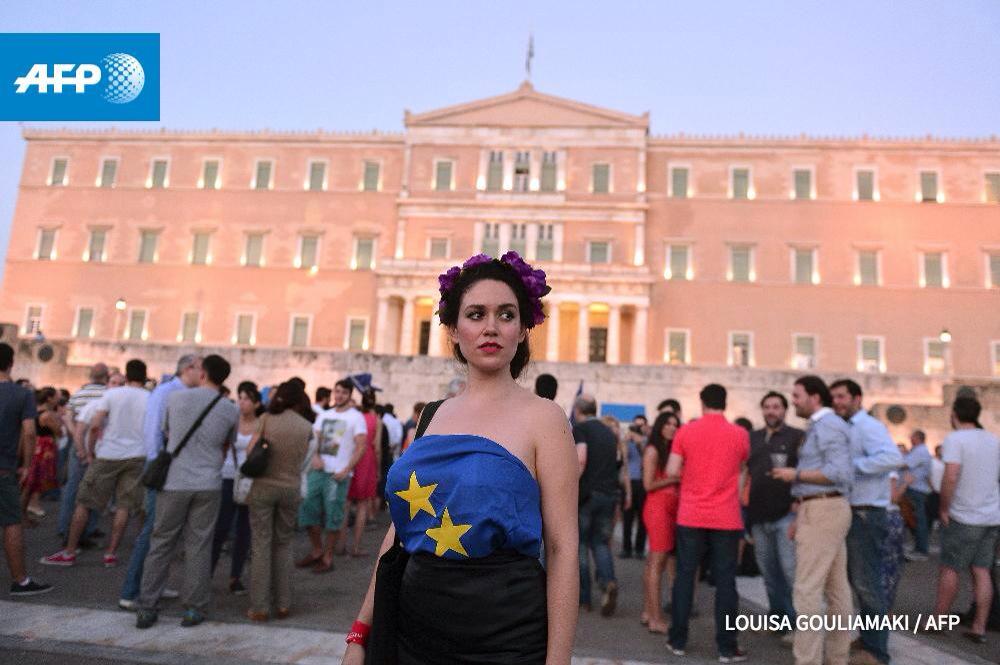
Pro-European Union protester demonstrates in front of the Greek parliament in Athens. Photo Louisa Gouliamaki: image via AFP Photo Department @AFPphoto, 9 July 2015
Tusk @eucopresident has suspended #EuroSummit on #Greece for bilateral meetings in search of compromise: image via Preben Aamann @PrebenEUspox, 12 July 2015
Triptych of Temptation of St Anthony (central panel): Hieronymus Bosch, 1505-06, oil on panel, 131 x 119 cm (Museu Nacional de Arte Antiga, Lisbon)
Finnish Finance Minister Alexander Stubb arriving at today’s Eurogroup finance ministers meeting: photo by Olivier Hoslet/EPA via The Guardian, 12 July 2015
The award for awkward conversation of the morning is shared between Tsakalotos and Alex Stubb: photo by Olivier Hoslet/EPA via The Guardian, 12 July 2015
Is Wolfgang Schäuble telling Michel Sapin how the idea of a "temporary Grexit" suddenly came to him?: photo by Olivier Hoslet/EPA via The Guardian, 12 July 2015
A Satyr Mourning Over a Nymph: Piero di Cosimo (1462-1522), c. 1495, oil on poplar, 65.4 × 184.2 cm (National Gallery, London)
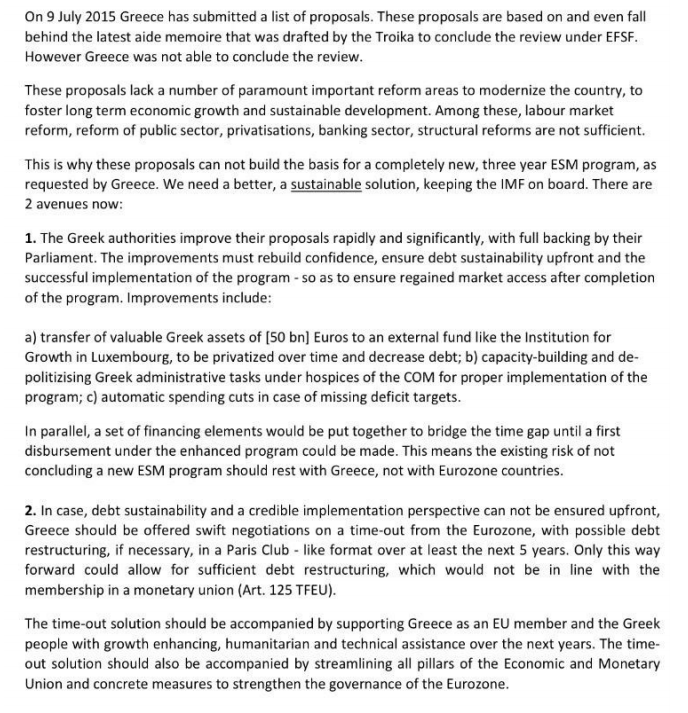
This is Germany's plan—all of it—to make Greece sell €50bn of "valuable assets" or leave the euro for at least 5 yrs: image via Matt O'Brien @ObsoleteDogma, 11 July 2015
Moin Moin Warum die #EU so bedenklich ist!: image via Einzelfallbearbeiter @Einzelfallbearb, 9 July 2015
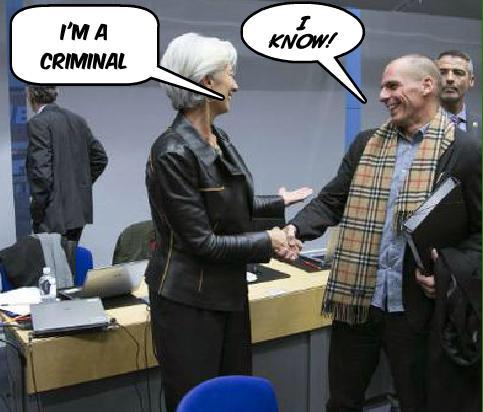
Excellent! #Humour #Varoufakis #love: image via S.C. @sunnydayforamum, 11 July 2015

Σοιμπλε #Schauble #schauble #Schaublexit #urogroup Germans: image via Rapa Nasta @rapanasta, 11 July 2015

Σοιμπλε #Schauble #schauble #Schaublexit #urogroup Germans: image via Rapa Nasta @rapanasta, 11 July 2015

#Schaeuble: I want more power!! Destroy the poor! I want my companys to own all Greece! Why they have sunshine?: image via Rapa Nasta @rapanasta, 11 July 2015
#Eurogroup Φινλανδια #vouli Μαλτα Germans Σοιμπλε #Schaublexit #eusummit #Grexit: image via Alexarium @Alexarium, 11 July 2015
Pretty much the conclusion of the #Eurosummit: image via Athena C @Athenaconstandi, 8 July 2015
EU Commissioner for Economic and Financial Affairs Pierre Moscovici, left, Finnish Finance Minister Alexander Stubb and EU Commissioner for the Euro Valdis Dombrovskis talk with Eurogroup President Jeroen Dijsselbloem, back to camera, Saturday in Brussels: photo by Thierry Charlier / AFP via Los Angeles Times, 11 July 2015
Greek Prime Minister Alexis Tsipras listens during a Eurogroup meeting in Brussels on Saturday night: photo by Menelaos Myrilas/SOOC via the press project, 11 July 2015
*There must be no alternative.** #Schaublexit: image via g00ndy @g00ndy, 11 July 2015

This man wants 11 million pounds of flesh and the end of democracy in Europe. Are you going to stop him or not?: image via Elikasg00ndy @Elikas, 11 July 2015
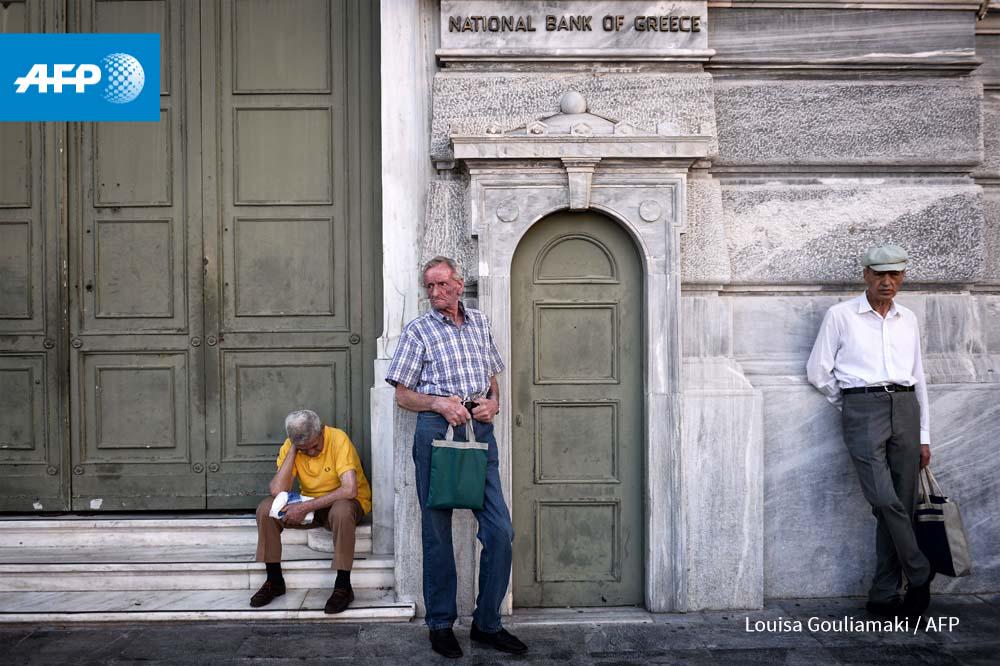
Greek pensioners wait outside a National Bank of
Greece to get their pensions on July 9 #GreekCrisis: image by Louisa Gouliamaki
@lgoulia, 10 July 2015 Greece
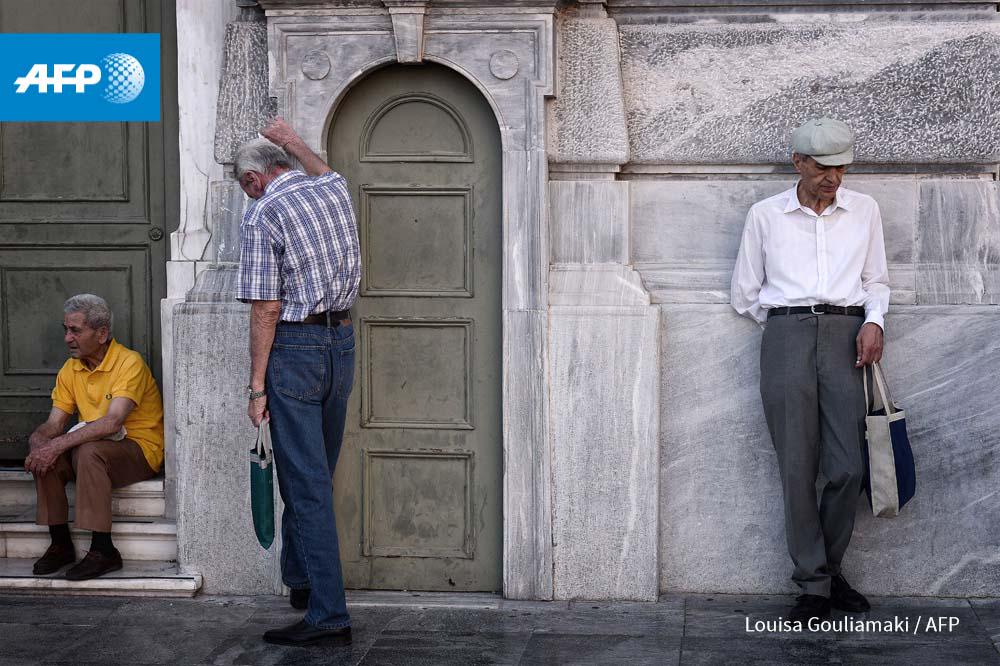
Greek pensioners wait outside a National Bank of
Greece to get their pensions on July 9 #GreekCrisis: image by Louisa Gouliamaki
@lgoulia, 10 July 2015 Greece
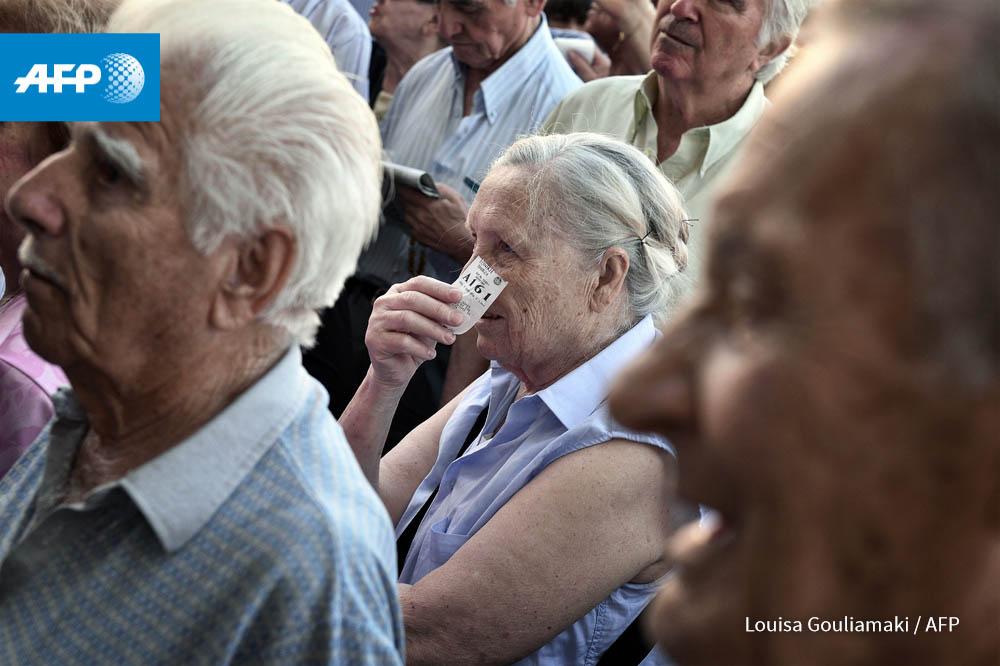
Greek pensioners wait outside a National Bank of
Greece to get their pensions on July 9 #GreekCrisis: image by Louisa Gouliamaki
@lgoulia, 10 July 2015 Greece
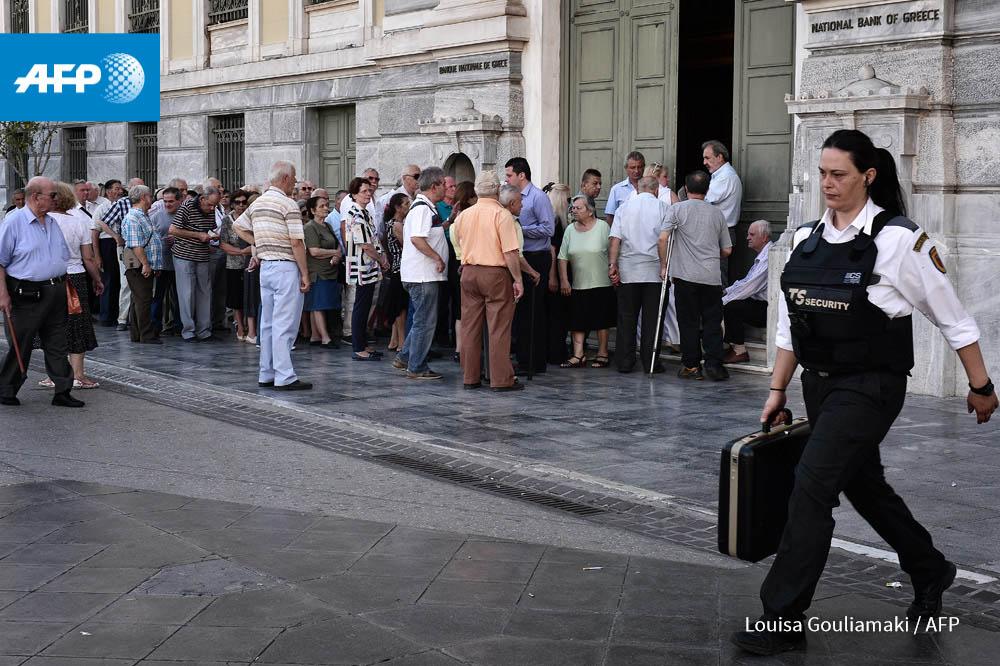
Greek pensioners wait outside a National Bank of Greece to get their pensions on July 9 #GreekCrisis: image by Louisa Gouliamaki @lgoulia, 10 July 2015 Greece
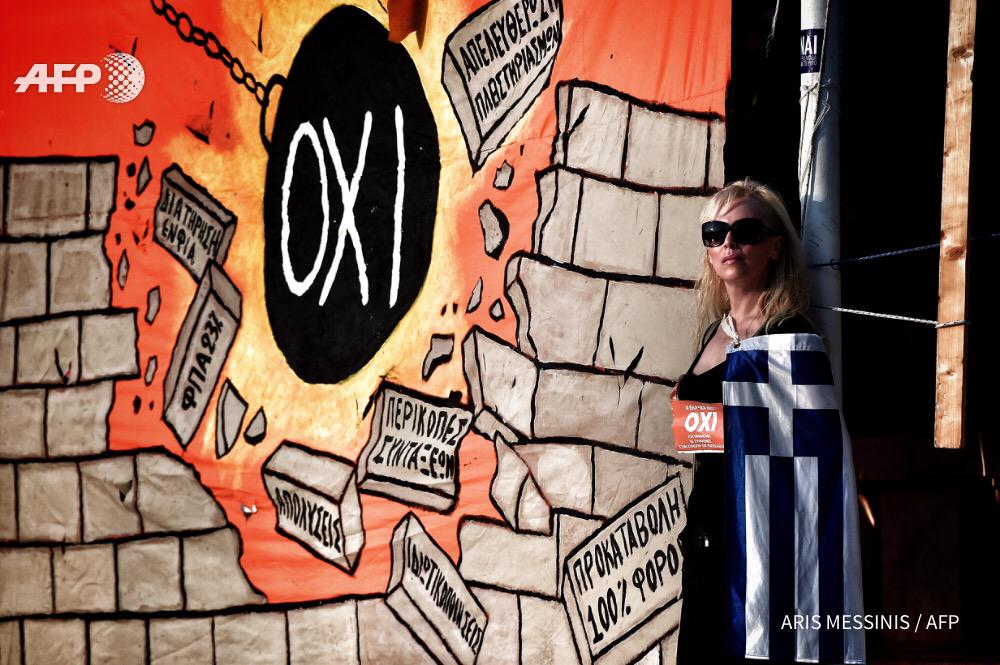
Anti-austerity protesters demonstrate in front of the Greek parliament: image by Aris Messinis @ArisMessinis,10 July 2015
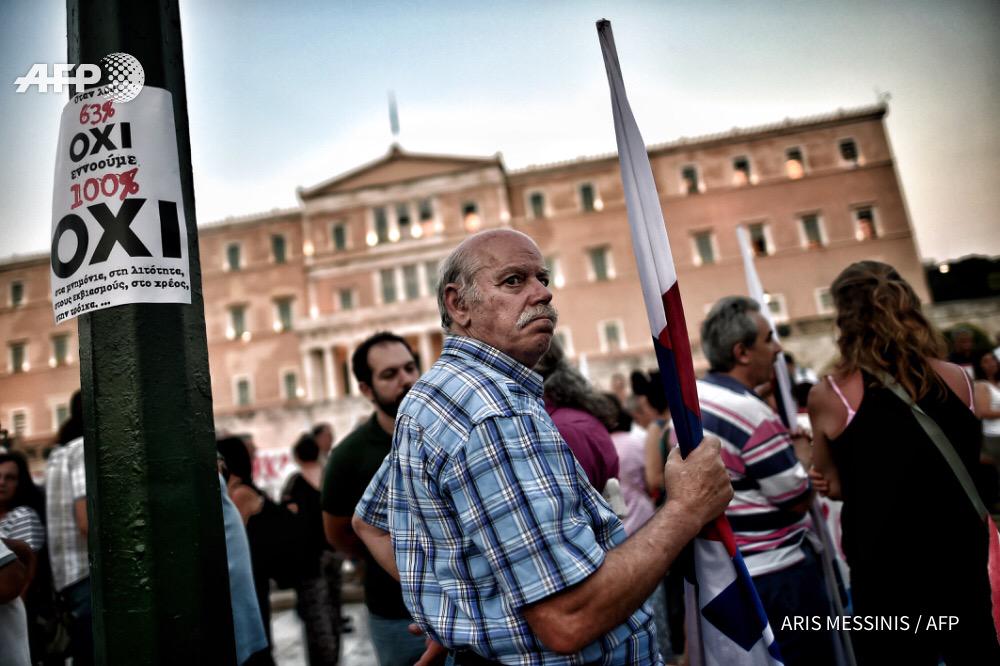
Anti-austerity protesters demonstrate in front of the Greek parliament: image by Aris Messinis @ArisMessinis,10 July 2015
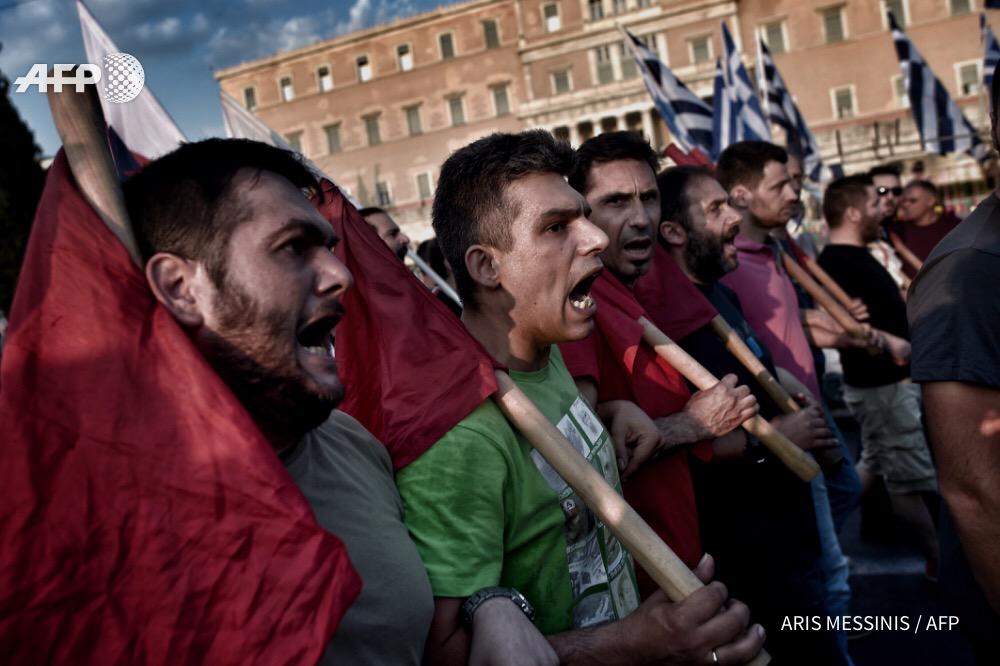
Anti-austerity protesters demonstrate in front of the Greek parliament: image by Aris Messinis @ArisMessinis,10 July 2015

Anti-austerity protesters demonstrate in front of the Greek parliament: image by Aris Messinis @ArisMessinis,10 July 2015
A pensioner arrives at a National Bank branch to receive part of her pension at the city of Thessaloniki, Greece on Friday: photo by Alexandros Avramidis/Reuters via FT Photo Diary, 10 July 2015
A pensioner arrives at a National Bank branch to receive part of her pension at the city of Thessaloniki, Greece on Friday: photo by Alexandros Avramidis/Reuters, 10 July 2015
Greek finance minister Euclid Tsakalotos listens to IMF managing
director Christine Lagarde during a Eurogroup meeting in Brussels,
Belgium, on Saturday: photo by Francois Lenoir/Reuters, 11 June 2015
Diners bowed their heads in prayer before eating at the Galini charity’s soup kitchen in Athens. Greece’s fiscal crisis has made many destitute and desperate, and is stretching the resources of charities and government agencies that help the poor: photo by Emilio Morenatti/Associated Press via New York Times, 12 July 2015
Greece Financial Crisis Hits Poorest and Hungriest the Hardest: Anemona Hartocollis, New York Times, 12 July 2015
ATHENS
— Behind the lace curtains of a soup kitchen run by a parish in the
humble Athens neighborhood of Kerameikos, the needy and hungry sit down
to a plate of sliced cucumbers, three hunks of bread, a shallow china
bowl of chickpea soup and often a piece of meat. Sometimes there is even
ice cream, a special treat.
People
prize the refectory, run by a priest, for its homeyness, and they
travel long distances to fill their empty stomachs at least once a day.
But
on Thursday, the priest, Father Ignatios Moschos was worried that he
would no longer have enough food to go around if the country’s economic
paralysis continues, as it seems likely to do even if Greece and its
creditors manage to work out a last-minute deal this weekend to avert a
Greek exit from the euro.
“It
will be hard, dark, painful,” the priest said, nibbling from a bowl of
pistachios as a long line of people waited for their turn to eat at the
communal tables. “We will have trouble receiving food.”
Poverty
in Greece has been deepening since the financial crisis began more than
five
years ago. Now, aid groups and local governments say they are beginning
to feel the effects of nearly two weeks of bank closings, as Greece
struggles to keep its financial system from failing and to break out of
years of economic hardship.
A man slept on an Athens
street near a closed store this month. Officials are trying to raise
funds to meet the needs of increasing numbers of destitute residents.: photo by Emilio Morenatti/Associated Press via New York Times, 12 July 2015
And
any deal with creditors this weekend will bring further cuts in
government spending. It will also bring higher taxes and, as a
consequence, more short-term pressure on the economy.
As
Athens takes on the aura of Soviet Russia, with lines of people outside
banks waiting to receive their daily cash allowance, some aid groups
are seeing their supply channels narrow. By some accounts, lines for
food, clothing and medicine have grown fivefold in parts of the capital
in the last two weeks alone.
The
European Parliament president, Martin Schulz, has said he shares
Greeks’ concerns. President Jean-Claude Juncker of the European
Commission said this past week that the European Union
was making plans for humanitarian aid to Greece to cushion the blow if a
third bailout was not worked out by Sunday and Greece was forced out of
the euro system.
Several
organizations and the city government of Athens said they were making
fund-raising plans. A prominent group, the Stavros Niarchos Foundation,
announced on Wednesday that it was immediately allocating 20 million
euros, or more than $22 million, toward the municipal governments of
Athens and Thessaloniki “to cover the immediate needs of citizens in the
large urban centers, who are experiencing the consequences of the
deepening crisis more severely.”
Of
course, not all of Athens is suffering. In central Athens and more
affluent suburbs, the cafes are full of Greeks and tourists eating,
drinking and talking until well past midnight. And if there is a deal
with the creditors, it could lead to the banks reopening at some point
soon.
But
much of Greece has been struggling for years with extremely high levels
of unemployment, cuts in social welfare programs and pensions and what
the Greek central bank concluded in 2014 was one of the highest rates of
income inequality among European Union countries.
"in Greece there will be no consumers -- there will be only
beggars"
Since
July 3, after the cash controls began, the Venetis chain of about 80
bakeries has expanded its charity program and has been giving away about
10,000 loaves of bread a day -- a third of total production -- to the
destitute, families with many children, the unemployed and retirees.
They
could be seen flying out of the darkness like birds to a Venetis outlet
in the Pangrati neighborhood of Athens one evening a few days ago,
belying the neighborhood’s facade of prosperity. In the poorest
neighborhoods, scuffles have broken out, Panayiotis Monemvasiotis, the
general manager of the company, said Friday.
“In
the third round of austerity measures, which is beginning now, it is
certain that in Greece there will be no consumers -- there will be only
beggars,” he said.
In
neighborhoods where tourists are less likely to go, such as the area
around Omonia Square, people in ragged clothes can be found sleeping on
sidewalks and in public parks. Others who are just a bit luckier are
able to hide their poverty. They negotiate rent cuts from landlords,
take advantage of social service agencies like Praksis that offer free
showers and washing machines to people without electricity or water, or
go to the soup kitchens scattered throughout Athens.
Xenia
Papastavrou, a founding member of Boroume, We Can, a nongovernment
agency that matches excess food from supermarkets, restaurants and even
wedding parties, with organizations that distribute it to people who are
hungry across Greece, said that more people have wanted to donate over
the last two weeks, because they see the need.
“I’m sure that things will get worse,” Ms. Papastavrou said.
One
of the largest soup kitchens in Athens is run by the city government,
in collaboration with the Greek Orthodox Archdiocese of Athens, near
Omonia on Pireos Street. It serves 600 to 1,000 people a day, city
officials said. Mayor George Kaminis of Athens issued a statement
Thursday saying that the city was helping support 20,000 people a day
with groceries, hot meals and other basics.
At
a donation center run by the city in Kato Patisia, the number of people
arriving each day for food, medicine and clothing has risen to 100 from
20 in just the last two weeks, Alexandros Kambouroglou, an adviser to
the mayor, said Thursday. He attributed that escalating demand to fear
of future shortages.
Charities
and government officials say that as long as the banks are closed and
the movement of money outside Greece is prohibited, they face the same
problem as every other Greek -- they cannot import supplies.
“As
a city we are working very systematically to make sure we have
provisions,” during this period of capital controls, Yorgos
Stamatopoulos, press secretary for the mayor of Athens, said Thursday.
“But at least we’ll suffer together”
Until
recently, the Galini Institution soup kitchen run by Father Moschos,
gave food to anyone who wanted it. But the demand has grown so quickly
that it has begun asking for documentation that people are poor, such as
proof of monthly income, employment status and the inability to make
rent or utility payments.
It
also used to close for part of the summer. But Father Moschos said he
believed the need would be so great this summer that it would have to
remain open.
In
the morning, the soup kitchen gives a package of cooked food to people
who prefer to take it home than to eat lunch communally. On Thursday the
take-home package contained a container of pasta with bacon and tomato
sauce, bread, sesame bread rings called koulouria and a can of
evaporated milk. People are expected to bring the container back for
more.
The
volunteers, including Evaggelia Konsta, whose family donates meat from
its meat company, sprang up to greet a 93-year-old woman who arrives
every day by bus, alone, to fetch food for herself and, she said, her
five grandchildren.
The
dining hall seats 56, and people eat in several shifts. The number of
people rises to about 450 a day on weekends, from 350 on weekdays, Ms.
Konsta said. There is air-conditioning, a relief from the scorching sun.
A heavy brass chandelier hangs overhead and volunteers politely put
plates of food on the table one at a time.
Fotis
Nikolaou, 39, an unemployed painter and tiler, wolfed down some soup on
Wednesday, then swabbed his plate with bread. He complained that the
daily wage for a laborer like him had dropped as low as €10 for 12 hours
of work, and that is off the books.
Only immigrants would take such
jobs, he said.
He
had no doubt that life would only get harder for Greece in the coming
weeks and months, and that he would only wait longer for the soup. But
he found comfort in thinking he would not be alone.
“We could suffer 20 years,” he said. “But at least we’ll suffer together.”
GREECE - A woman passes by a graffiti depicting a homeless person in central Athens. By @ArisMessinis #AFP: image by AFP Photo Department @AFPphoto, 11 July 2015
#BanksyBristol: image via BigFatBakes @bigfatbakes, 30 March 2014
Stencil by Banksy at waterline on social entertainment boat Thekla, central Bristol, England: photo by Adrian Pingstone, 2 April 2005
A Satyr Mourning Over a Nymph: Piero di Cosimo (1462-1522), c. 1495, oil on poplar, 65.4 × 184.2 cm (National Gallery, London)
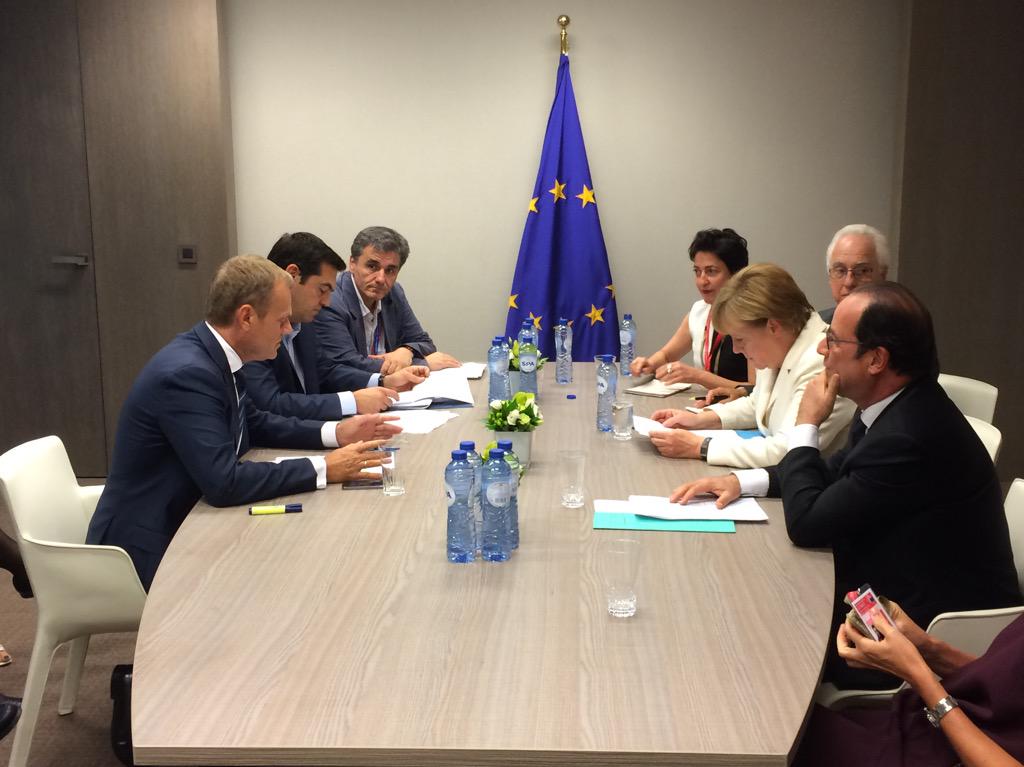


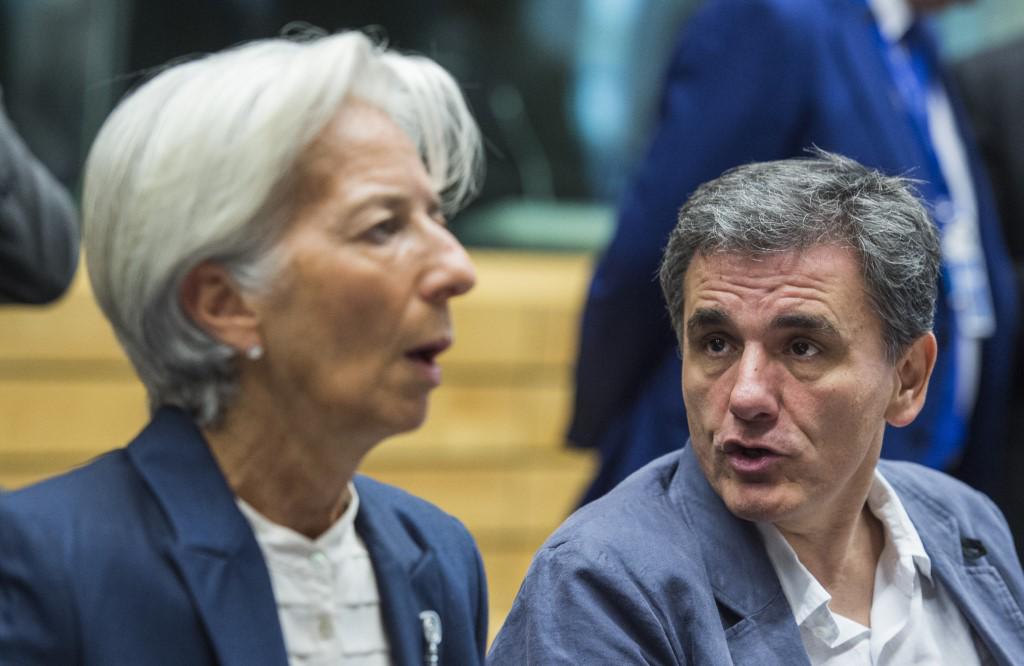



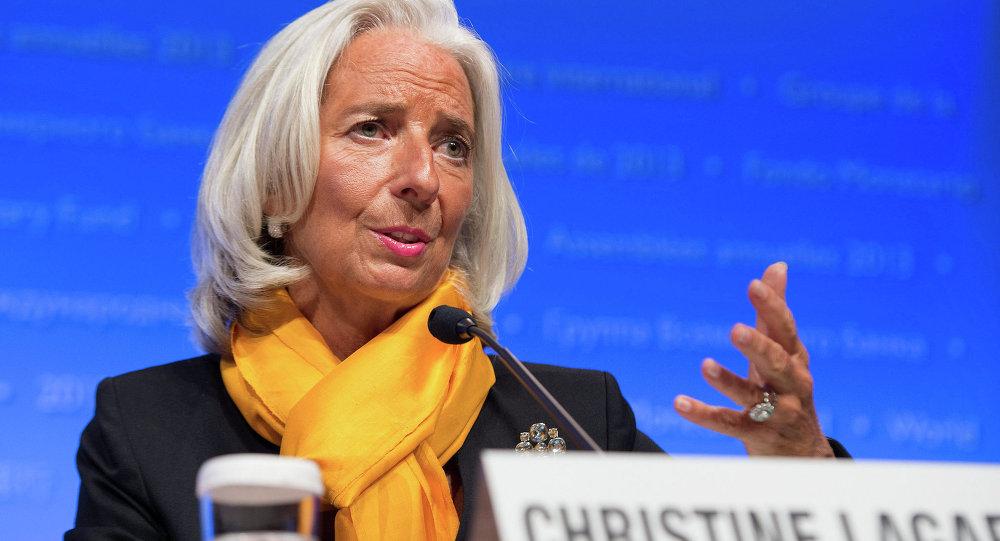
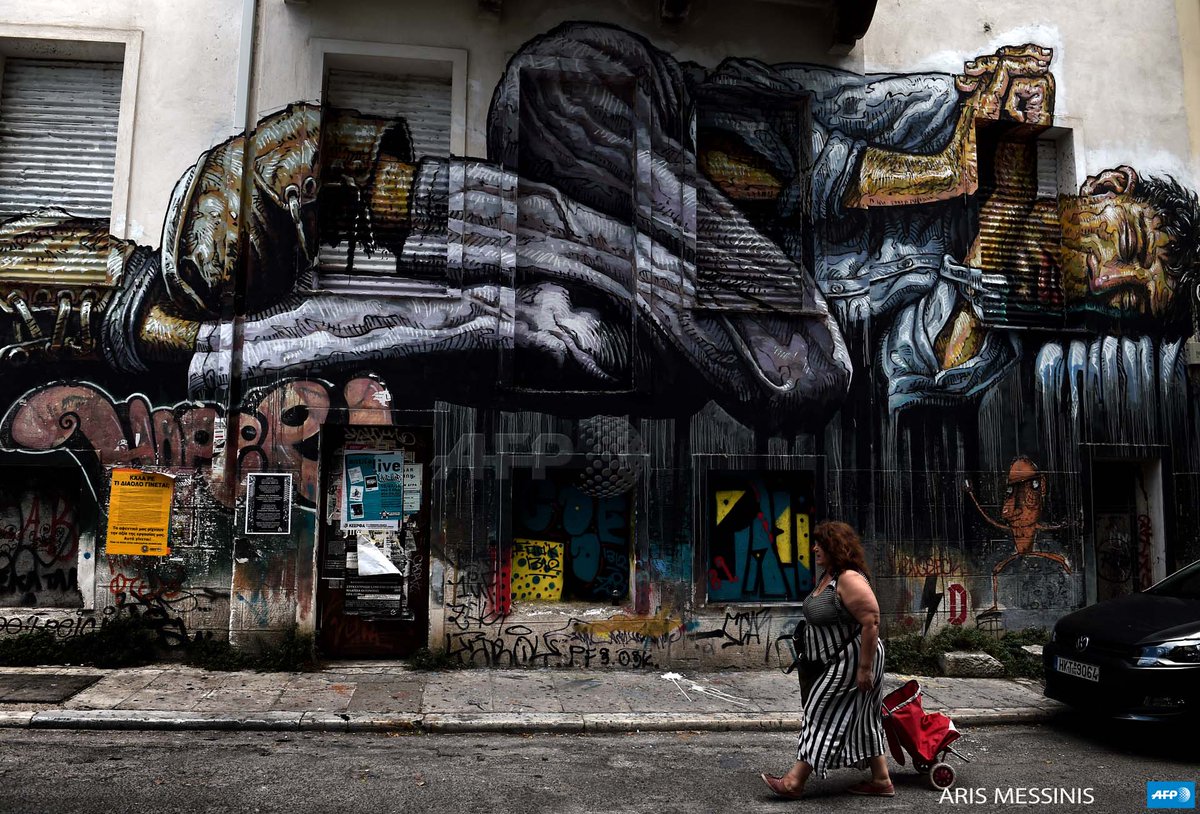




9 comments:
This came I think during an invasion of Lebanon, but it seems to fit here, during the "financial-genocidal" invasion of Greece (?)...
GREAT CRUELTY AND HEARTLESSNESS
We’re living in a time of great cruelty and heartlessness
where instead of a sun they’re throwing up
anvils
Instead of sunlight there’s the sound of
hammers beating
Instead of walking there’s kicking
Instead of thinking there’s talking
It’s almost as if there’ve never been times like
these before
Even shadows thrown by cartwheels on dirt roads
resemble the grimaces of armies as they
slide across rocks
In the palaces of power clocks go off but no one
wakes
Decisions are made by pouring acid down drains
or waiting for nightfall in a room lit by
neon tubes
If anyone speaks all eyes are upon them
I saw a sparrow fly over a fence
An ant stop and not go on
But laughter has turned to pebbles
falling on zinc
And children have been torn from their futures
_____
7/19/2006 (from In the Realm of Neither)
Decisions are made by pouring acid down drains
pebbles
falling on zinc
__
... a corrosive time...
If there is any good from this it is that the IMF and the others have been shown up for what they are. This is what they've been doing to 'developing' countries for years.
As with your previous post, Tom, the experiments tried on one people (the Irish) serve as a template for others (the Indians).
Let there be no dissenting view: This man drips pure evil.
Some things culled mostly from http://time.com/3951187/greece-tempts-the-fates/
Former Greek Finance Minister Stefanos Manos: "In Greece we produce practically nothing, and we were taking on massive debts just to live lavishly."
Including hiring public employees by the hundreds of thousand and plying them with perks. Bonuses were handed out for arriving at work on time and knowing how to use a computer. Forestry workers got bonuses for having to work outdoors. Each state employee got a yearly bonus worth two monthly paychecks regardless of performance.
The state-run airline handed out free tickets to voters before an election.
The ruling parties did not want to risk alienating voters by cutting back on any of this so it just kept borrowing money. The arrival of the Euro made this borrowing even easier and cheaper (in the short run).
The Greek government cooked their books to hide the fact that they would never be able to pay back the loans. (Goldman Sachs helped them do this.)
The reason, according to Manos: "To keep armies of supporters relying on the system."
Tom, I don't mean to sound like a neocon here. I think the loaners are as guilty as the loanees. But this is often being portrayed as the big bad EU/Germany/France beating up on poor innocent Greece when the full picture is much different.
"I'm obsessed by Time magazine." -Allen Ginsburg
Tom,
I think Stiglitz and Krugman have been quite damning of this latest move. Says a lot when those who are centre-left can be so critical (I'm perfectly aware that 'centre-left' is equivalent to stinking-murderous-Commies in some circles in America!).
I find it a bit rich of the Germans and the IMF to talk about trust and accountability. Given their histories one would have expected, perhaps, some humility. Perhaps not. I think that's what you get when you're ideologically driven. The IMF is really a one trick pony. I've met some people who worked for them back in the land of the pure..they think the World Bank is left-wing!
And the pair of them have been surprisingly right on point, all through this, as if anybody cared.
A bit rich and then some!
Let's see: you turn over all your national assets into a locked holding account in a location we designate... and then hold your breath!
Puts me in mind of an adolescent prank common in my youth. It was called "hold your wallet".
"I'll hold your wallet, and... meet me on the corner... later..."
What a deal!
This whole money system is a charade of gameplaying masking cruelty and duplicity beyond the calculation even of the calculators of these miserable calculating banker-states, these loathsome merciless doctor strangeloves, these exterminators of the human, but what can you do?
ThisIsACoup (Vassilis Zambaras: Hope Dies Last / An Air of Acquiescence)
The calls for privatisation give me the shudders. Think of Yeltsin's Russia, of the UK still in thrall to Thatcher's grand relentless project; no good can come of it.
It needs to be said clearly and repeatedly - what is happening IS ideological.
Absolutely. Coercion and punishment as enforcement... Make a lesson out of 'em.
Any time Finland needs a cash injection, sell off a Greek port to the highest bidder.
That should work.
The problem is, he dimly reckoned, after the money machine and the smart phone, what other ideology IS there, on this planet, really?
Can there ever be a meaningful difference between capitalism and its instruments and means of instrumentation?
Post a Comment